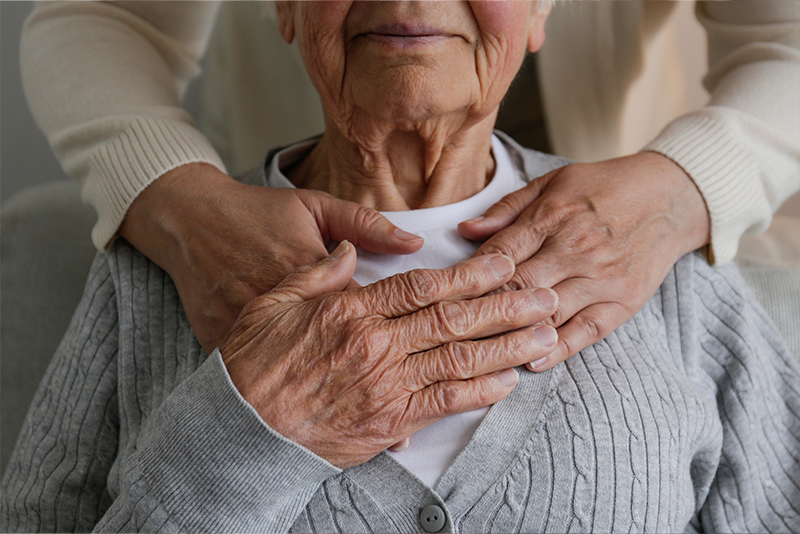Share

The Importance of Hydration for Seniors
Staying hydrated is one of the simplest yet most important ways to protect our health—especially for seniors. As we age, our bodies naturally retain less water and our sense of thirst diminishes. This makes older adults more vulnerable to dehydration, which can lead to serious health issues if not addressed.
In this blog, we’ll explore why hydration matters, signs of dehydration to watch for, and practical hydration tips for seniors to help ensure better health and well-being at home.
Why Is Hydration So Important for Seniors?
Water plays a vital role in nearly every function of the body. From regulating temperature to aiding digestion and cushioning joints, hydration supports all aspects of health. However, senior health hydration becomes more critical due to the natural changes that come with aging:
-
Decreased kidney function
-
Reduced sense of thirst
-
Medications that may cause fluid loss
-
Mobility or cognitive issues that make it harder to get water
When seniors don’t drink enough fluids, they risk complications such as urinary tract infections, dizziness, constipation, confusion, and even hospitalizations.
That’s why it’s important for caregivers and family members to encourage seniors to drink water regularly and monitor for signs of dehydration.
Signs of Dehydration in Older Adults
Spotting dehydration early can prevent more serious health issues. Here are some common signs to look out for:
-
Dry mouth or cracked lips
-
Dark yellow urine or infrequent urination
-
Fatigue or weakness
-
Dizziness or lightheadedness
-
Headaches
-
Confusion or memory problems
-
Rapid heart rate
If you notice any of these symptoms in a loved one, encourage fluid intake and consider contacting a healthcare provider for further guidance.
Simple Hydration Tips for Seniors
Ensuring proper hydration doesn’t have to be difficult. Try these hydration tips for seniors to help build healthy habits:
1. Offer Fluids Regularly
Don’t wait for thirst. Encourage sipping water throughout the day—during meals, medications, and social activities.
2. Make Water More Appealing
Add a slice of lemon, cucumber, or berries to water for a refreshing twist. Herbal teas or flavored water (without added sugar) can also be good options.
3. Use a Water Bottle
A reusable water bottle is easy to carry around and provides a visual reminder to drink. Some even have markings to track fluid intake.
4. Set a Schedule
Help seniors drink fluids at regular intervals—such as first thing in the morning, mid-day, and before bed.
5. Offer Hydrating Foods
Water-rich foods like watermelon, oranges, cucumbers, lettuce, and soups can boost hydration levels without the need to drink more.
6. Monitor Medication Side Effects
Some medications increase the risk of dehydration. Be sure to discuss these concerns with a healthcare provider.
How Much Water Should Seniors Drink?
A general rule of thumb is to aim for 6–8 cups of fluids daily, but this varies based on individual health needs, activity level, and climate.
Fluids can come from water, tea, milk, broth, or even fruits and vegetables. If you’re unsure about how much your loved one should be drinking, a healthcare professional or one of our in-home caregivers can help develop a personalized plan.
When Home Care Can Help
At CaringHomeCare.com, we understand that staying on top of daily health routines—like drinking enough water—can be challenging for some seniors. That’s where our in-home care services come in.
Our trained caregivers can:
-
Gently remind clients to drink water
-
Monitor signs of dehydration
-
Prepare hydrating meals and snacks
-
Track fluid intake
-
Communicate changes in health to families or medical professionals
Whether your loved one needs companionship, personal care, or help managing daily routines, we’re here to support their overall wellness at home.
📌 Learn more about our Personal Care Services and Homemaker Services to see how we can help.
Hydration is essential for everyone—but especially for seniors. By recognizing the signs of dehydration and implementing small daily changes, you can protect your loved one’s health and comfort.
If you’re looking for reliable support to keep your loved one safe and healthy at home, Caring Home Care is here to help.
Managing Chronic Pain in Older Adults Chronic pain is a common and often debilitating issue among older adults, affecting their ability to perform daily activities and enjoy life. Managing chronic pain effectively requires a combination of medical treatments, lifestyle adjustments, and alternative therapies. By understanding pain management options, seniors and caregivers can work together to
Five Tips to Prevent Identity Theft for the Elderly: What to Watch Out for and Precautions to Take Identity theft is a growing concern, especially for the elderly, who are often targeted by scammers due to their perceived vulnerability. Elderly individuals may be less familiar with digital security practices, making them susceptible to various types
Water provides an often ideal environment for seniors to exercise, grow strength, and improve mobility and balance. Water provides just enough buoyancy to support a fraction of your elderly loved one’s body weight and just enough resistance. This makes it much easier to exercise in the water, strengthen muscles and improve your loved one’s flexibility.
Falls and their resulting injuries are a major concern for our senior loved ones. We can attribute most falls to gradually declining strength, balance, and mobility because of inactivity. The good news is this is preventable with daily exercise. Depending on the state of your loved one’s health and fitness level, some common, easy-to-do exercises
Need A Caregiver? Fill Out Form Below
With our competitive rates, we make receiving in-home care affordable regardless of whether you’re using your insurance or paying out of pocket.




